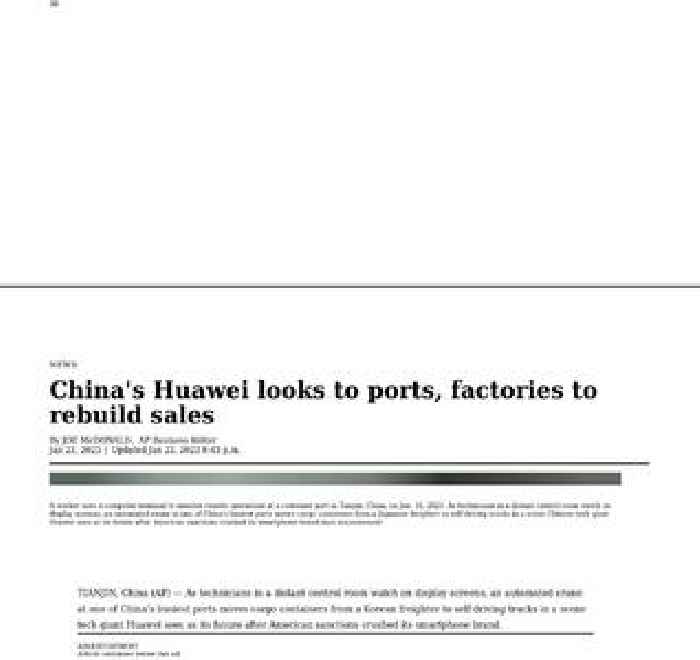
China's Huawei looks to ports, factories to rebuild sales

TIANJIN, China (AP) — As technicians in a distant control room watch on display screens, an automated crane at one of China’s busiest ports moves cargo containers from a Japanese freighter to self-driving trucks in a scene tech giant Huawei sees as its future after American sanctions crushed its smartphone brand.
The backbone of the “smart terminal” at the Tianjin Port, east of Beijing, is a data network built by Huawei, which is reinventing itself as a supplier for self-driving cars, factories and other industries it hopes will be less vulnerable to Washington's worsening feud with Beijing over technology and security.
The ruling Communist Party is promoting automation in industries from manufacturing to taxis to keep China’s economy growing as the workforce ages and starts to shrink. Its managers say the “smart terminal,” part of Tianjin's 200-square-kilometer (77-square-mile) port, allows 200 employees to move as much cargo as 800 used to.
“We believe this solution in Tianjin is the world’s most advanced,” said Yue Kun, chief technology officer of Huawei’s business unit for ports. “We believe it can be applied to other ports.”
Huawei Technologies Ltd., which makes smartphones and is the biggest global supplier of network gear for phone carriers, struggled after then-President Donald Trump cut off access to American processor chips and other technology in 2019 in a feud with Beijing about security.
Washington says Huawei is a security risk that might use its access to foreign phone networks to facilitate Chinese spying, an accusation the company denies. The United States and allies including Japan and Australia have banned or restricted use of Huawei equipment by their phone carriers.
Smartphone sales outside China collapsed after Huawei lost music, maps and other...
